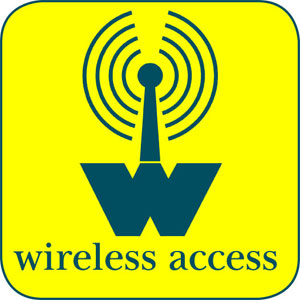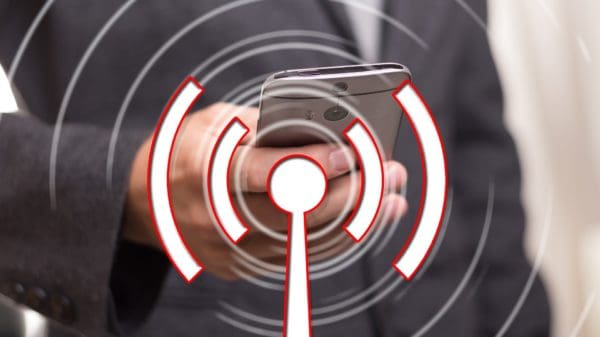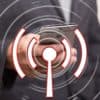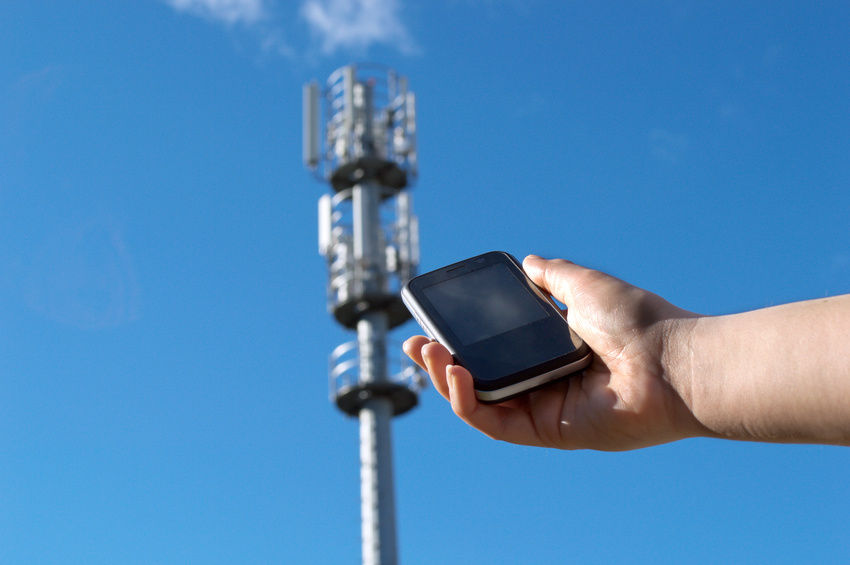We use wireless internet daily—at coffee shops, libraries, hotels—but how secure is that Wi-Fi hot spot? Is your information safe? And what can you do protect yourself?
What are the Risks?
Wireless internet is an open network of radio waves, and as you surf the web, your information is sent across those waves. On a secure wireless network, a password is generally required to join the network. Most public Wi-Fi spots, however, aren’t secure, and anyone can join, including hackers. Once hackers are on your same unsecure network, they can intercept your information as it floats across the waves, posing all kinds of security risks:
Data Theft
Hackers can easily intercept your credit card or bank account information that you enter in a Wi-Fi connection. They can also easily steal passwords and sensitive login information.
Stealing your information via Wi-Fi is a lot easier than you’d think. Hackers can use a simple Firefox Add-on called Firesheep that makes stealing your Facebook, Twitter, and Gmail passwords as easy as installing a plugin. This is just one of many free tools out there available to hackers.
Criminal Activity
Criminals can abuse use your wireless connection to perform illegal activity, like virus attacks, hacking, and distributing illegal material. You may be held liable for any illegal activity associated with your IP address and Wi-Fi connection.
Access to Corporate Accounts
Once a hacker gains access to your computer via Wi-Fi, they can easily snoop out any remote access you might have with your work computer and use that to steal valuable company information. They can look into your work email accounts, sensitive documents, and even gain access to your corporate accounts, causing trouble not only for you, but for you company as well.
How can you Stay Safe?
Protect yourself from Wi-Fi hackers by taking the following steps:
Use a Safe Network
Never connect to Wi-Fi connections you don’t trust. If you’re at a hotel or a coffee shop, ask them what their wireless network is named and only use that network. Even if the network looks safe, don’t trust it unless you’ve verified the name of the network.
Use a Firewall
Protect yourself from virus attacks by installing a virus or firewall program on your computer. A firewall is a program you can install to protect your network and computer from malicious activity. Firewalls filter through information coming through your network and alert you of suspicious activity and unauthorized connection attempts.
Avoid Entering Sensitive Information
It’s best to avoid the problem completely and avoid entering any sensitive information, like credit card numbers, on a public Wi-Fi connection. A firewall may prevent hackers from connecting to your computer, but it doesn’t keep them from stealing sensitive information you pass along the unsecured wireless networks.
If you absolutely need to use your credit card on a public connection, make sure the site’s URL has “https” at the front of the URL, which means it’s an encrypted connection and will scramble your data as it travels across the internet.
Use a VPN
A Virtual Private Network (VPN) is a method of creating a secured connection on a non-secure network. A VPN requires a username and password and scrambles all of your information as it’s passed across the internet. This is the most secure option for using public Wi-Fi connections.
Knowing the potential security risks, you may want to think twice before logging on to the free network at your local coffee shop. Take the proper precautions and trust your instincts, and you can continue to enjoy the convenience of public Wi-Fi.
This guest post was provided by Russell Jensen. You can follow him on Twitter @RussellJensen.

21 Comments
Leave a Reply
Cancel reply
Leave a Reply
This site uses Akismet to reduce spam. Learn how your comment data is processed.





















































































































































































Bill Hollins
March 9, 2012 at 5:58 pm
An important consideration is the security of the wireless network. Many networks are unsecured, meaning anyone with a wireless card can read whatever you are sending on the Internet (unless it’s HTTPS). These are the networks that you need to be most concerned about.
Ryan
March 10, 2012 at 1:18 am
Bill, I partly agree it takes the hackers part to infiltrate the network, if you don’t have an antivirus or firewall program. If you are going to do any surfing on computers with personal information or documents then I highly recommend using a firewall or antiviral program.
Also with your Facebook account make sure that you are protecting your privacy by making sure you able the highest protection for you site.
Ryan
Rene
March 10, 2012 at 4:49 am
Eeeek, I’ve always been a bit icky about connecting to wireless networks. My phone was set on auto connect when i first bought it and I quickly disabled this setting.
I find airports are the dodgiest places for unsecured networks, some of them just sound off.
The thought of someone getting in and accessing all of my information just makes me feel so yukky.
Another thing to think about is Apps on smart phones, I know I’m a sucker of not reading the terms and conditions before downloading them, but a lot of them can access your private information just by you hitting the download button.
Not that I’m a nervous wreck or anything, but it definitely pays to be careful these days.
Julie
March 10, 2012 at 4:26 pm
Such an informational post! Thanks for the useful tips, I think the VPN is the best solution for staying safe on a non-trusted network. A couple of years ago, I used to work from coffeeshops with free wifi connection, and after getting some attacks, I searched for some solutions for being safe. Unfortunately, a firewall isn’t enough for that.
Tracyann0312
March 12, 2012 at 6:00 am
Hi Russel. I totally agree in what you have said that hackers can easily get into the service provider because they can easily get inside if you do not have firewall or proxy. Wireless is an important device to connect in internet service provider. I love to know some of this safe tips, thanks for sharing it.
Haley
March 12, 2012 at 6:44 am
I love this post, this is something that newbies should read. I have been bothered by the unsecure environment over wireless hotspots that I have decided to go VPN. I have not regretted that decision.
Nishadha
March 12, 2012 at 8:58 am
Thanks for this informative post as a laptop user who frequently uses wireless hot spots these are valuable information.
Olivia
March 12, 2012 at 9:59 am
Now you got me reconsider about connecting to a WI-FI. I will never connect to a wi-fi spot without thinking twice at least.
Prakash
March 12, 2012 at 4:26 pm
Thanks for this valuable information……wireless hotspots are mainly used and staying safe is little bit complicated…..
thanks for sharing it…………..
stella
March 12, 2012 at 7:30 pm
it is a nice knowledge about wireless network …in my university the IT department give us the gateway key to use the wireless internet so this is the way to secure your networking from spam and hackers.
Lauren
March 12, 2012 at 8:38 pm
Hi Russell,
These days most of the Wi-Fi service providers have made their network highly secured and robust so its more secure these days to surf your private data in public places. But even though why should we take a chance? This post is super awesome, I just loved it.
Danny
March 13, 2012 at 6:40 am
One thing many people don’t think of is if the highly secured network is actually owned by a trusted person.
There are people who for example go to a hotel with their laptop and use their laptop as a wifi hotspot and give it the same name as the hotel. Then you come and want to login to the hotels network so you scan for wifi networks and find one that has the name of the hotel. You login to it, and like many hotels it asks for your creditcard details. But in this case you are filling out your creditcard details for the criminal. This is why it is important to ask the reception desk or an employee what the exact name of the network is, so you connect to a trusted network.
Maneet Puri
March 13, 2012 at 12:14 pm
Nice Post!! Open networks are vulnerable to security breaches because they don’t encrypt the data, your passwords or other information that can be vulnerable to attack, which means it’s up to you to be aware of wireless hotspot security. So, better we take precautions to ensure complete security.
Nicholle Olores
March 14, 2012 at 4:51 am
Such a great and valuable information. I use to connect in a Wireless internet connection and I never thought that it is not secure. I have to be more safer in this kind of situation. Thanks for letting us know this.
John
March 14, 2012 at 5:12 am
Another security option you may want to employ is by disabling the SSID broadcast. You can reconfigure the base station to not broadcast the SSID – somewhat like a stealth mode. This tactic will keep out most random passersby.
Bishwajeet
March 15, 2012 at 4:37 pm
You should always be on the safer side and try not to connect to an unknown hotspot as you never know what’s in it.
Priti
March 16, 2012 at 4:41 am
I always have my doubts on connecting my computer to public Wi-Fi. I always make sure that the Wi-Fi I am using is genuine and not a pseudo- Wi-FI hub created by some blogger. I use public Wi-Fi only for casual browsing and watching online videos. For checking mail and online transactions, I prefer using my 3G internet instead. Your post has however provided more information on what not to do in public WiFi systems.
Ezra
March 16, 2012 at 9:24 am
Wi-Fi hot spot is any area where you can access the Internet using a wireless device. A hot spot is created by setting up a wireless local area network. In most hot spots, you bring your own Wi-Fi enabled device to use. Hosting a hot spot has many advantages, as does using a hot spot
But most of this are If you host a Wi-Fi hot spot, you are giving your customers access to high-speed wireless Internet. This gives you an edge over competitors who don’t offer a hot spot, as you’re providing something extra. This could attract more customers to your business and increase revenue. You also have access to a private network that you and your employees can use for personal and professional purposes.
Anita
March 21, 2012 at 8:12 pm
You mean everyone can access my data on unsecured networks?!
mazcorn
April 6, 2012 at 12:54 am
thank you for your very useful tips from, it was too dangerous if there is no security as we always use the wireless .. .
Felicia Corrine
May 4, 2012 at 6:44 am
Good post. It is really bad when the hackers can easily get into our personal data. It will be very easy for them to steal our money or use our personal information in unethical ways. Cyber security is the need of the hour.